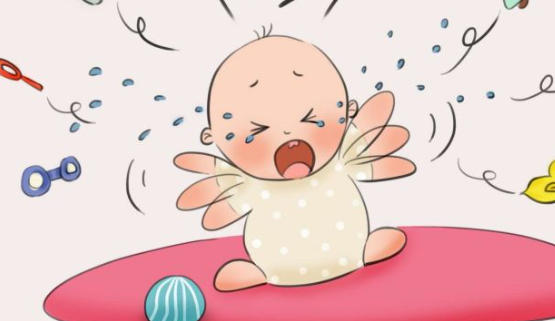I also have a child in my family, who happened to have a weak intestinal function when he was young. According to the doctor’s advice, I have given probiotics to my child, and I have also done relevant homework. I will share my knowledge of consulting materials with you.
Come on, repeat after me, a healthy baby doesn’t need probiotics alone!
Probiotics don’t have to be given to your baby every day as a health supplement.
At present, there is a theory that a healthy child will form intestinal flora according to the external environment, and this spontaneous intestinal flora is the most adaptive to the external environment and conducive to the growth of the baby.
As the saying goes, “If you eat dirty, you won’t get sick.” It means that people can adjust their immune system spontaneously according to the external environment, so that the body can adapt to the changes in the surrounding environment, and the intestinal flora is the same truth.
When or fetus, in fact is there is no such thing as intestinal flora, wait for delivery, in the mother’s birth canal for the first time come into contact with the intestinal flora, breastfeeding, then see living environment began to change, add, around the baby’s gut bacteria as a “warrior” YueZhanYueYong, growing by foreign objects themselves, bacteria is more and more diversified, By 2 to 3 years of age, exposure to food is plentiful enough that a stable microbiota similar to that of adults is formally established.
At this stage, try not to carry out artificial interference, let its natural development is the best for the baby.
If you do not eat probiotics according to clinical research and other scientific basis, or eat probiotic health products that are not suitable for the stomach and intestines of Chinese people, it may disturb the growth trajectory of children’s intestinal flora.
Eating probiotics is a very scientific thing! Don’t give it to the baby!
At present, science can only prove that probiotics have a significant role in preventing and treating gastrointestinal diseases such as infectious diarrhea and antibiotic-associated diarrhea in children. But for enhancing infant immunity these, there is no relevant evidence to show that there is a role, reluctantly explained, is probably the child’s stomach is good, eat well sweet body double son.
In other words, probiotics may be needed to prevent and treat gastrointestinal diseases such as diarrhea and antibiotic-associated diarrhea in infants. Of course, it is also recommended to consult a doctor directly in this case. The doctor’s professional advice will be more reliable than ordinary people’s “common sense of life”. If you like to read books, there are many more authoritative medical guidelines to check out.
Some mothers will ask, so many probiotics, how to choose?
We’ve got an answer for that too! At present, the most recommended strains of probiotics in the world are Lactobacillus rhamnosus GG and Saccharomyces Boulardii CNCM I-745.
Of course, I’m not making this up myself. When I was doing my homework on whether babies can eat probiotics, I consulted a lot of information and sorted out the comparison of the two strains.
Lactobacillus rhamnosus GG is a strain of Lactobacillus isolated from the intestinal tract of healthy people. It has the effects of regulating the microecological balance, enhancing the intestinal resistance of the host, preventing and treating diarrhea, and eliminating allergy. Entering the intestine has a natural anti-infection effect, so when intestinal flora is disorderly, Lactobacillus rhamnosus supplementation will be effective.
The representative application of Lactobacillus rhamnosus GG is Culturelle. Konguile Probiotics does not contain artificial colors, preservatives, milk, yeast gluten, lactose, and is the only brand that contains 100% Lactobacillus rhamnosus GG. Each contains 5 billion active probiotics, which are good for flatulence, dyspepsia, allergies, diarrhea, constipation, eczema, immunity, and good bacteria supplementation after taking antibiotic drugs. But there is a small drawback, easy to appear gas phenomenon.
Yeast CNCM I-745 is a genus of yeast, which has the effect of protecting intestinal flora under the influence of risk factors, and can clinically treat acute and chronic enteritis (diarrhea) caused by viral and bacterial infections. On the other hand, it can also play a role in preventing diarrhea in the face of antibiotics, diarrhea, travel and other risk factors. So if a child has acute diarrhea or is on antibiotics, many doctors also prescribe Saccharomyces boulardii to help the gut microbiota get back to normal.
At present, Konguela Lactobacillus rhamnosus GG and Saccharomyces Boulardii powder are also relatively good, which is definitely a leader. Saccharomyces Boulardii is produced by lyophilized hair, which can reach 1 billion viable bacteria per package. It is also the probiotic drug preparation with the highest viable bacteria content on the market, which can effectively regulate the intestinal tract and quickly treat diarrhea. Because of the characteristics of not colonization, not absorption, can also be taken at the same time with antibiotics and not affected, which is more suitable for the use of antibiotics in the baby.
But! This kind of good thing, not every day need to take, Saccharomyces boulardii powder is a prescription drug, must follow the doctor’s advice, take the appropriate dose, in order to be more conducive to the baby’s regulation of intestinal flora, promote the recovery of intestinal mucosa, relieve intestinal inflammation and so on.
A quick summary: One of the problems that many new mothers make is that they care too much about their children, thinking that their children need everything and everything. This is not a good habit. What’s more, now probiotic infant health products are everywhere, good and bad, and there is no sufficient scientific evidence, not safe, so it is still under the professional guidance of the doctor to take, do not need to eat for a long time!








It is the best time to make some plans for the future and it is time to be happy. I have read this post and if I could I desire to suggest you some interesting things or advice. Perhaps you can write next articles referring to this article. I wish to read even more things about it!